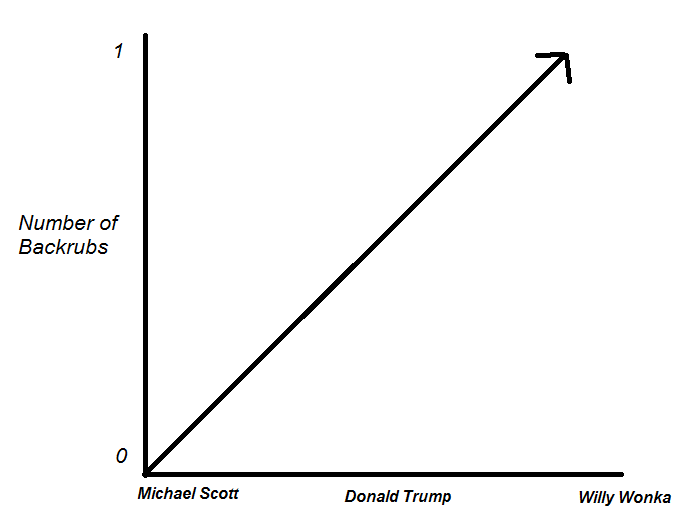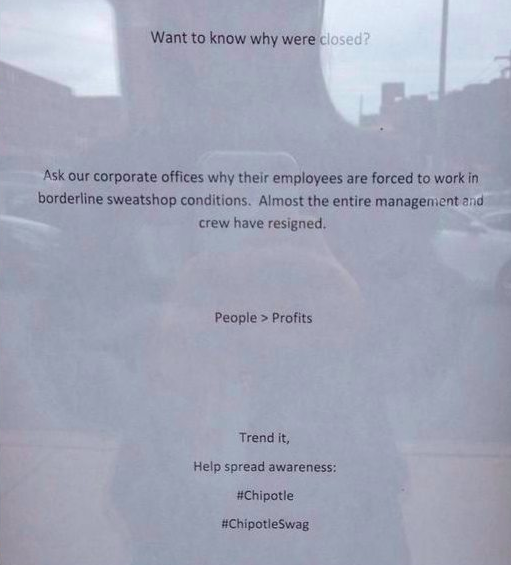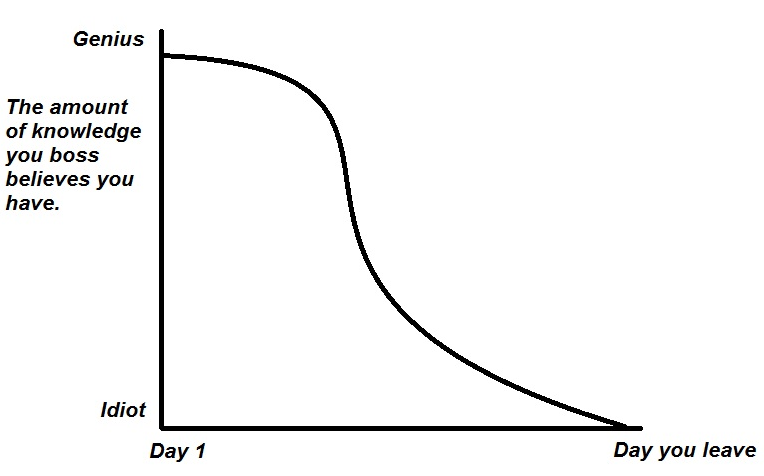As some of you may have realized from recent posts (Wanted: People Who Aren’t Stupid), I’ve been interviewing candidates recently for the position of Technical Recruiter working for my company HRU. I love interviewing because each time I interview I think I’ve discovered a better way to do it, or something new I should be looking for, and this most recent round of interviews is no different. Like most HR/Talent Pros I’m always interested in quality work/co-op/internship experience – let’s face it, it’s been drilled into us – past performance/actions will predict future performance/actions. So, we tend to get excited over seeing a candidate that has experience from a great company or competitor – we’re intrigued to know how the other side lives and our inquisitive nature begs us to dig in.
What I’ve found over the past 20 years of interviewing is that while I love talking to people that worked at really great companies – I hire more people that have worked at really bad companies. You see, while you learn some really good stuff working for great companies – I think people actually learn more working for really crappy companies! Working at a really great companies gives you an opportunity to work in “Utopia” – you get to see how things are suppose to work, how people are suppose to work together, how it a perfect world it all fits together. The reality is – we don’t work Utopia (at least the majority of us) we work in organizations that are less than perfect, and some of us actually work in down right horrible companies. Those who work in horrible companies and survive – tend to better hires – they have battle scars and street smarts.
So, why everyone wants to get out of really bad companies (and I don’t blame them) there is actually a few things you learn from those experiences:
1. Leadership isn’t a necessity to run a profitable company. I’ve seen some very profitable companies that had really bad leadership – people always think they’ll leave those companies and they’ll fail – they don’t. Conversely, I’ve worked for some companies that had great people leaders and failed.
2. Great people sometimes work a really crappy companies. Don’t equate crappy company with crappy talent. Sometimes you can find some real gems in the dump.
3. Hard work is relative. I find people who work at really bad companies, tend to appreciate hard work better than those who work a really great companies with great balance. If all you’ve every known is long hours and management that doesn’t care you have a family – seeing the other side gives you an appreciation that is immeasurable.
4. Not having the resources to do the job, doesn’t mean you can’t do the job. Working for a crappy company in a crappy job tends to make you more creative – because you probably won’t have what you need to do the job properly, so you find ways.
5. Long lasting peer relationships come through adversity. You can make life-long work friends at a crappy job – who you’ll keep in contact and be able to leverage as you move on in your careers. And here’s what each of you will think about the other: “That person can work in the shit!” “That person is tough and get’s things done” “That person is someone I want on my team, when I get to build a team”
We all know the bad companies in our industries and markets. Don’t discount candidates who have spent time with those companies – we were all at some point needing a job – a first experience, a shot at a promotion or more money, etc. and took a shot at a company we thought we could change or make a difference. I love people who worked for bad companies, in bad jobs with bad management – because they wear it like a badge of honor!



